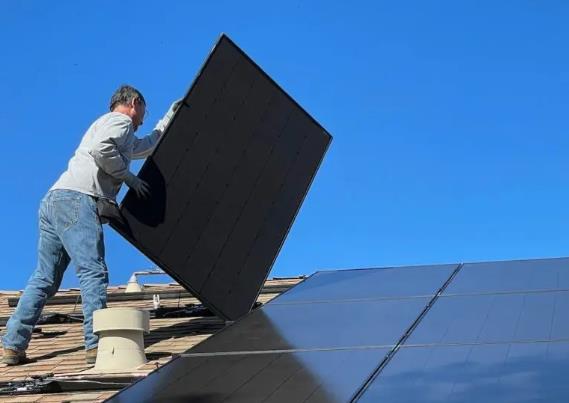Why Are My Solar Panels Not Producing As Expected?
When solar panels fall short of their expected power output, it's crucial to identify and address the underlying issues. Several factors can impact the efficiency and performance of your solar system, from environmental influences to technical malfunctions. Let's delve into the common reasons behind underperformance and how you can tackle them.

Suboptimal Installation Location
The location and orientation of your solar panels play a pivotal role in their efficiency. For optimal sun exposure, panels should ideally be installed facing south in the Northern Hemisphere, with a tilt angle that matches your latitude. If panels are positioned in shaded areas or are not angled correctly, their ability to generate power diminishes, leading to lower-than-expected output.
Environmental Debris and Maintenance
Solar panels exposed to the elements can accumulate dust, leaves, bird droppings, and other debris, which can obstruct sunlight and decrease efficiency. In areas with high dust levels or frequent bird activity, this accumulation can reduce power output significantly. Regular cleaning and maintenance are essential to ensure your panels operate at peak efficiency, potentially improving output by 15-25% in some cases.
Temperature Impacts
Solar panels have an optimal temperature range for operation, typically around 25°C (77°F). As temperatures rise, the efficiency of photovoltaic cells can decrease, reducing power output. On particularly hot days, this thermal effect can lead to a noticeable drop in energy production, with efficiency losses of about 0.5% for every degree Celsius above the optimal range.
Wear and Tear Over Time
All solar panels experience a natural degradation rate, generally losing about 0.5% to 1% of their efficiency per year. This gradual loss means that older panels will not produce as much power as they did when new. After 20-25 years, panels might only achieve around 80% of their initial output, even under ideal conditions.
Technical Issues with System Components
Components within your solar power system, such as inverters and batteries, can fail or become less efficient over time. Inverters, in particular, are crucial for converting DC electricity from the panels into usable AC power. Any malfunction within these components can significantly impact the overall power production of your solar system.
Seasonal and Daily Variations
Solar power production naturally fluctuates with the changing seasons and weather patterns. Shorter days in the winter, lower sun angles, and increased cloud cover can all contribute to reduced solar output. Understanding these seasonal variations can help manage expectations regarding your system's performance throughout the year.
Solar Panels Not Producing As Much: Identifying and Addressing the Issue
To tackle underperformance, start by assessing the installation location and environmental cleanliness of your panels. Consider professional cleaning or repositioning of panels if necessary. Monitoring temperature effects and understanding seasonal changes can also provide insights into fluctuating output levels. For technical issues, consult with a solar energy specialist to inspect and repair any malfunctioning components.
In summary, several factors can cause solar panels to underperform, from environmental conditions to technical malfunctions. By identifying the specific causes and implementing targeted solutions, you can enhance the efficiency of your solar panels and ensure they produce power as expected, securing your investment in renewable energy.